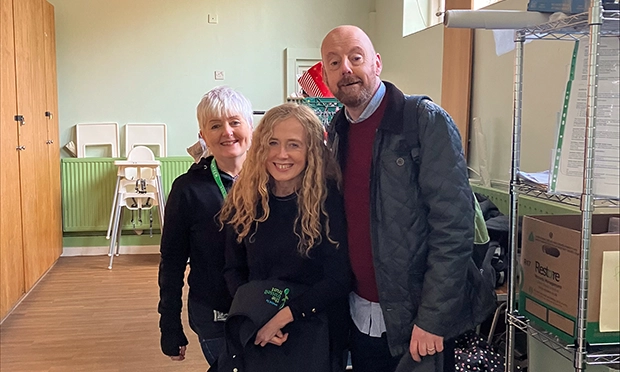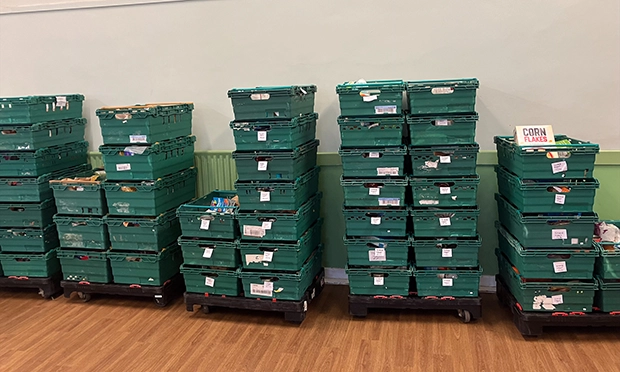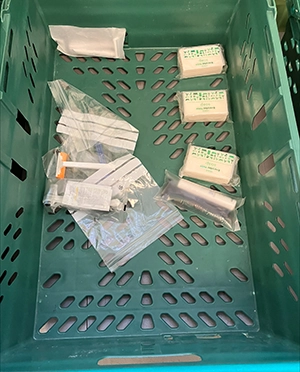‘I don’t remember it ever being this bad’: Volunteers at Hackney Foodbank dealing with constant stream of visitors as residents struggle with financial pressures

Volunteers at Hackney Foodbank. Photograph: Marion Weaver
Volunteers at Hackney Foodbank are seeing record levels of visitors – as the charity’s emergency £100k appeal continues.
One volunteer said: “I’ve been through at least two or three recessions. I’m old enough to remember the power strikes in the 1970s. I don’t remember times being as bad as this.
“People struggling with debt and not being able to do the basics and heat their homes.”
She remembers comparable financial struggles that her family had growing up, but they never stopped them heating their home.
“It’s inflation. And housing prices are ridiculous. Even social housing rent.”
There are six Hackney Foodbank distribution centres where visitors can choose to go once a week during a two-hour session to collect a food parcel.
Food boxes sit in stacks and stacks against the walls inside Lady & St. Joseph’s church.

Stacks of boxes at the distribution centre. Photograph: Marion Weaver
There are boxes for different dietary requirements and sizes of families, and boxes of the limited number of toiletries like tampons and toothpaste, and teas and coffee.
Six volunteers work together to check visitors’ vouchers and pass them a box of food that will last three days, as well as any of the extra items they need.
The constant stream of people arriving at the church keeps the volunteers on their feet for the whole session. By the end, the huge supply of boxes is very depleted.
The Foodbank tries to make boxes as balanced as possible, using tinned food donations because they don’t have the infrastructure to store fresh food.
One of the staff at the Foodbank is Farhan, collecting data on the causes of food poverty through questionnaires for The Trussell Trust.
Several food banks are part of the project, which will be used to influence government policy.

Depleted supplies. Photograph: Marion Weaver
Farhan said: “It is challenging because people find it embarrassing to reveal their reasons.”
He sees more women than men at food banks, and his research shows benefit delays are a key cause of food poverty.
“And you can imagine how long it takes that person to pay back that loan,” he added.
“The interest rates pile up. When you get your benefit it may not be enough to last because you have to pay your debts, rent and energy bills.
“For those people, the Foodbank isn’t as simple as something they can do for six months.”
He said he expects older people who lost their jobs during the pandemic and are likely to be out of work for years to face food poverty.
“That kind of person will rely on the Foodbank for a very long time.”
According to Farhan, something that could help with issues like benefit delays is councillors being more visible in the community.
“When I was in primary school in Hackney, councillors or MPs would regularly drop into schools.
“Councillors told me as a child what they did. If I saw them on the street, I would wave. I now don’t see that relationship in Hackney.”
Hackney Foodbank recently launched a £100,000 emergency appeal. It is expecting to spend £125,000 on food this year – up from just £2,000 in 2017.
